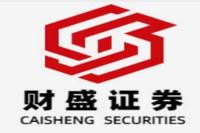Top Chinese Asset Managers' Q3 US Stock Portfolio Moves: A Deep Dive
Meta Description: Uncover the key investment strategies of top Chinese asset managers like Hillhouse, Gao Yi, and Jinglin in Q3 2024, including their significant holdings in Chinese stocks and adjustments to their portfolios. Learn about their approaches to tech giants like Apple and the evolving landscape of Chinese investment in the US market. Includes insights on PDD, AAPL, and more.
Whoa, Nelly! The dust has settled on the third-quarter 13F filings, and the investment world is buzzing! For those of us keenly following the moves of major Chinese asset managers – folks like Hillhouse Capital, Gao Yi, and Jinglin – the tea leaves are finally ready to be read. This isn't just some dry recitation of numbers; it's a thrilling narrative of strategic shifts, bold bets, and the ever-evolving relationship between Chinese capital and the US stock market. We’re talking about millions, nay, billions of dollars in play, and the decisions these firms make have ripple effects felt across global markets. Think of the implications for individual investors, the larger economic picture, and the fascinating dance between different investment philosophies. This isn't just about the numbers; it's about the story behind the numbers – a story of calculated risks, market intuition, and the relentless pursuit of returns in a dynamic and often unpredictable environment. We'll unpack the intricacies of their portfolio adjustments, delve into the reasoning behind their decisions, and offer insightful commentary based on years of tracking these titans of finance. Buckle up, because this is going to be a wild ride! We'll explore the motivations behind their moves, considering broader economic factors, geopolitical influences, and the inherent risks and rewards associated with investing in volatile markets. Prepare to be amazed by the sophisticated strategies employed by these leading managers and the potential impact on your own investment strategy. This is more than just financial news; it's a masterclass in strategic investing, presented in a way that's both accessible and engaging.
Key Q3 Portfolio Adjustments: A Breakdown
This quarter saw a fascinating mix of action. Several key themes emerged, painting a picture of strategic adjustments in the face of a complex market environment. Overall, many firms continued their focus on Chinese stocks (aka, "Chinesestocks" – a term we'll use frequently as shorthand!). Let's break down the key players:
Hillhouse Capital (HHLR Advisors): Hillhouse, known for its long-term investment horizon, showed a remarkable concentration on Chinese assets. Their Q3 portfolio saw a significant increase in the percentage of Chinese stocks, up to a whopping 93%! That's some serious commitment. A key highlight? A massive increase in their Alibaba (BABA) holdings, while simultaneously reducing their stake in Pinduoduo (PDD). This suggests a strategic shift within the e-commerce sector – perhaps a bet on Alibaba's long-term growth potential. The move to trim PDD, despite its impressive growth, could be interpreted as a profit-taking strategy or a shift in their assessment of the competitive landscape.
| Hillhouse Top 10 Holdings (Q3 2024) | Percentage of Portfolio | Change from Q2 |
|---|---|---|
| BeiGene (BGNE) | 15% | +5% |
| Alibaba (BABA) | 12% | +64% |
| Pinduoduo (PDD) | 10% | -46% |
| Legend Biotech | 9% | +2% |
| VIPShop (VIPS) | 8% | -1% |
| NetEase (NTES) | 7% | +3% |
| KE Holdings (BEKE) | 6% | -2% |
| Trip.com (TCOM) | 5% | +1% |
| Futu Holdings (FUTU) | 4% | Stable |
Gao Yi Assets: Gao Yi continued to lean heavily on Chinese stocks, further increasing its "China exposure." A notable move was the increase in their Pinduoduo holdings, contrasting significantly with Hillhouse's decision. This highlights the diverse perspectives and risk appetites within the Chinese investment community. Interestingly, they also reduced their holdings in ZTO Express, a trend that's continued from previous quarters. This may reflect shifting views on the logistics sector's long-term prospects.
Jinglin Asset Management: Jinglin took a different approach, significantly reducing its holdings across most of its top positions. This could indicate a more cautious stance on the market or a desire to rebalance their portfolio. However, they bucked this trend by considerably increasing their stake in Apple (AAPL), making it a top-seven holding. This is a fascinating divergence from the overall sentiment.
Himalaya Capital (Li Lu): Li Lu, often dubbed the "Chinese Warren Buffett," mirrored Buffett's actions by significantly reducing his Apple holdings. He also followed Buffett's lead by increasing his stake in Occidental Petroleum (OXY). This showcases the influence of prominent investors and the potential for "me too" investment strategies.
Apple (AAPL): A Case Study in Divergent Views
The varying approaches to Apple highlight the diverse investment philosophies at play. While Buffett and Li Lu significantly reduced their exposure, Jinglin went the opposite direction, significantly increasing their position. This divergence underscores the importance of individual investment research and different risk tolerance levels. Some may view Apple as overvalued, while others might see it as a relatively safe haven in times of market uncertainty.
Frequently Asked Questions (FAQs)
Q1: Why are Chinese asset managers so focused on Chinese stocks?
A1: Many reasons contribute to this focus. Firstly, these managers often possess deeper understanding and insights into the Chinese market. Secondly, the growth potential of many Chinese companies remains attractive. Finally, there’s a patriotic element – supporting domestic companies.
Q2: Is it risky to invest in Chinese stocks?
A2: Investing in any stock market carries inherent risks. Chinese stocks are subject to specific geopolitical risks and regulatory changes. Thorough due diligence is crucial.
Q3: What does this tell us about the future of Chinese investment in the US?
A3: The Q3 data suggests a continued, albeit nuanced, interest in the US market by Chinese firms. Their focus remains heavily weighted toward Chinese companies listed in the US, but strategic shifts and adjustments indicate a dynamic and evolving investment landscape.
Q4: How can I learn more about these asset managers' investment strategies?
A4: Follow reputable financial news sources and research reports that analyze their 13F filings. Remember that past performance is not indicative of future results.
Q5: Should I invest based on what these managers do?
A5: Absolutely not! These are sophisticated investors with significant resources and expertise. Mimicking their moves without a deep understanding of underlying factors is extremely risky.
Q6: What are the broader implications of these investment moves?
A6: These portfolio adjustments have implications for the valuations of the affected companies, the overall market sentiment, and the broader relationship between the US and Chinese economies. These shifts are worth watching closely.
Conclusion: The Ongoing Saga
The Q3 13F filings offer a captivating glimpse into the minds of some of the world's most influential investors. The decisions made by Hillhouse, Gao Yi, Jinglin, and Himalaya Capital reveal a complex interplay of factors – market dynamics, regulatory changes, and strategic perspectives. While these insights are fascinating, it’s crucial to remember that "copying" their moves is a dangerous game. Instead, use this information to enhance your own understanding of the market and develop your own informed investment strategy. The story continues… stay tuned!



